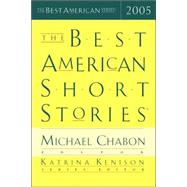
| Foreword | p. ix |
| Introduction | p. xiii |
| The Smile on Happy Chang's Face: from Post Road | p. 1 |
| Until Gwen: from The Atlantic Monthly | p. 19 |
| A Taste of Dust: from Ninth Letter | p. 35 |
| Old Friends: from The New Yorker | p. 43 |
| Eight Pieces for the Left Hand: from Granta | p. 58 |
| Stone Animals: from Conjunctions | p. 67 |
| First Four Measures: from The Paris Review | p. 109 |
| The Scheme of Things: from The New Yorker | p. 125 |
| Silence: from The New Yorker | p. 149 |
| Death Defier: from Virginia Quarterly Review | p. 174 |
| The Girls: from Idaho Review | p. 212 |
| Anda's Game: from Salon.com | p. 223 |
| Simple Exercises for the Beginning Student: from Swink | p. 251 |
| Old Boys, Old Girls: from The New Yorker | p. 265 |
| The Secret Goldfish: from The New Yorker | p. 288 |
| The Cousins: from Harper's Magazine | p. 298 |
| Natasha: from Harper's Magazine | p. 318 |
| Hart and Boot: from Polyphony | p. 339 |
| Justice Shiva Ram Murthy: from Harvard Review | p. 356 |
| Bohemians: from The New Yorker | p. 374 |
| Contributors' Notes | p. 383 |
| 100 Other Distinguished Stories of 2004 | p. 394 |
| Table of Contents provided by Ingram. All Rights Reserved. |
The New copy of this book will include any supplemental materials advertised. Please check the title of the book to determine if it should include any access cards, study guides, lab manuals, CDs, etc.
The Used, Rental and eBook copies of this book are not guaranteed to include any supplemental materials. Typically, only the book itself is included. This is true even if the title states it includes any access cards, study guides, lab manuals, CDs, etc.